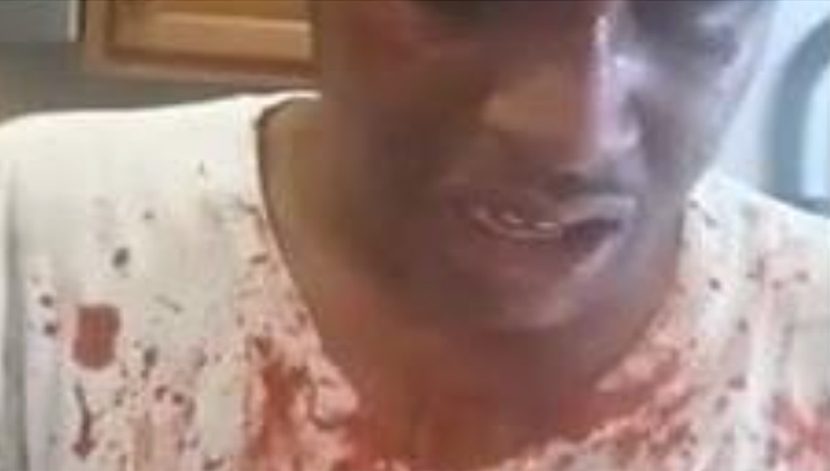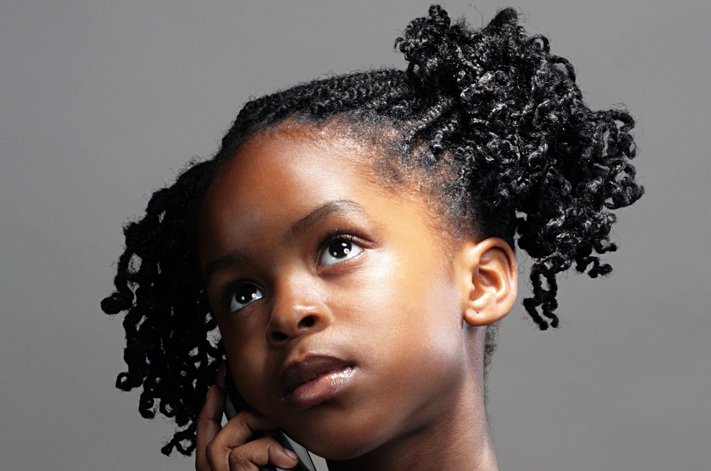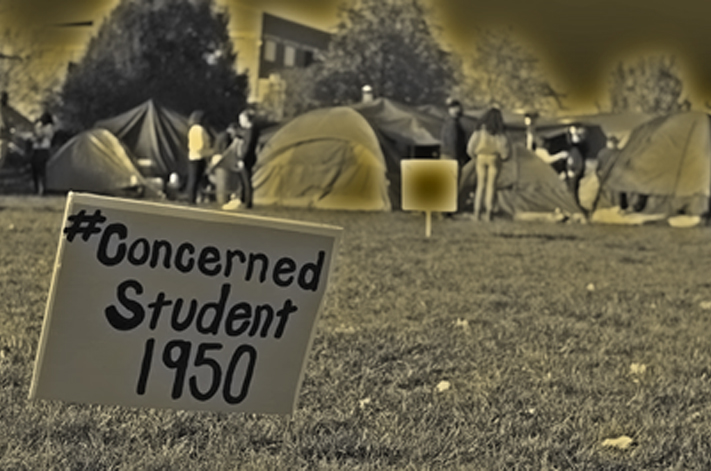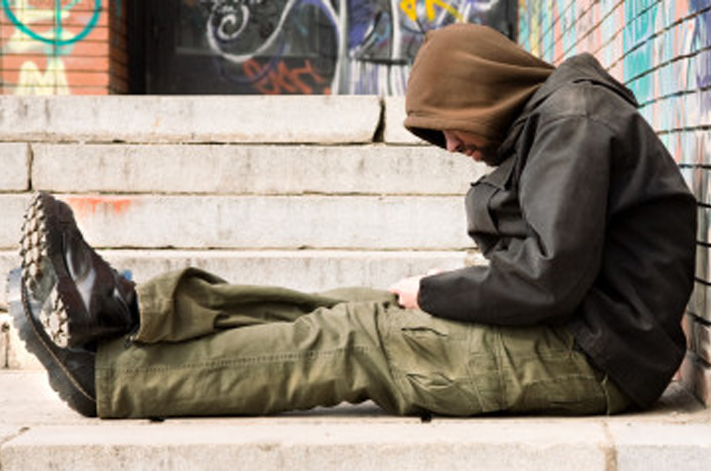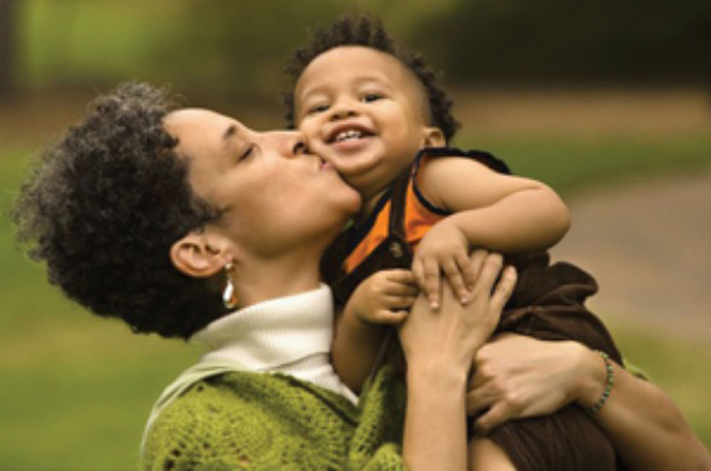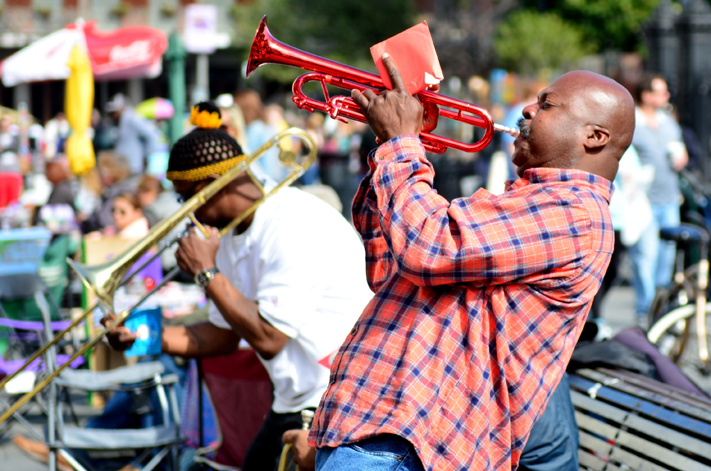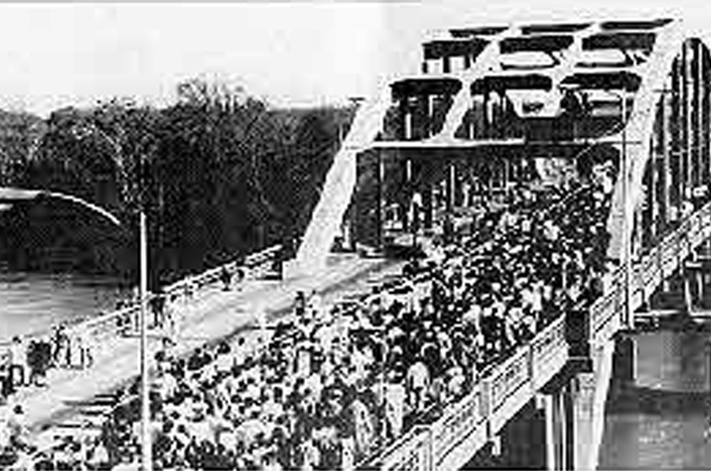Project Description
'There aren’t too many places I’d feel comfortable stopping'
Many a Black child has that moment when they learn that certain White spaces are off limits to them. That not only are such spaces unwelcoming, but they can possibly be dangerous. The Black teenagers who attempted to attend a pool party on the White side of the town of McKinney, Texas, learned that lesson the hard way this weekend, when a white woman instructed them to return to “Section 8 housing.” It was further cemented when the cops arrived and forced them to the ground, one officer in particular tackling and wrestling with one of the girls, and aiming his weapon at another who rushed to her assistance. “You are not welcome here” is a painful, disquieting lesson that most children of color who enter White spaces learn.
It is a lesson that not only robs a child of their physical freedom, but also their dignity and innocence. I know this because as a Black child, I was not spared this lesson.
When I was seven years old, my family and I had embarked on an interstate road trip between New Jersey and Texas (the first of many) to visit a cousin in Houston.
“Are we going to see horses and cows?” I questioned my mom as she herded my brother, sister and me to the car.
“Well, it’s going to be mostly just highway,” she warned. I couldn’t hide my disappointment. As a city kid, I infrequently had the opportunity to see nature, and “Babe,” the ’90s film with the talking pig, made me yearn for a farm visit. There was nothing exciting about a highway– I knew that much from driving on them regularly in Jersey.
“We can stop somewhere and visit a farm!” I recommended. My mom shrugged her shoulders and did not respond for a minute.
“There aren’t too many places I’d feel comfortable stopping,” she finally said.
Her discomfort made no sense to me, so I figured it was merely an adult excuse not to give in to childish requests. I folded my arms in protest and I sat in the backseat of the car, staring out of the window and avoiding my mother’s eyes in the rearview mirror for miles as we sped past the smoky, swampy industrial Newark scene and buildings became grassy expansive fields.
Our first stop was in South Carolina.
“Pool and complimentary breakfast,” a sign at the front of the hotel read.
“There’s a pool!” I whispered excitedly to my brother. There was only one thing that could lift my spirits after being denied a visit with Babe: splashing around in the pool with my brother on a hot summer day. We begged my mother to let us go swim and after a moment’s consideration, she finally gave in.
“Be careful and don’t be too loud,” she warned to our backs as we ran out of our room, bathing-suit clad. She agreed to meet us there after getting settled in.
The empty pool area greeted us like a brand new playground. I threw my towel onto a nearby lounge chair and dove into the pool immediately. The cool water made the pores raise on my skin, as I twirled on to my back and floated to the surface. I breathed a sigh of relief, only interrupted by a gigantic nearby slash that sent water straight up my nose. In between coughs, I chased my brother around the pool trying to get him back, until we tired ourselves out and held onto the sides, bobbing up and down in the waves created by our play.
“Can we play with y’all?” a little boy with dark brown skin that matched my brother’s chocolate-y complexion questioned. We nodded yes, and he motioned for two of his friends to come over, who appeared from what seemed like the woodwork near the parking lot. They took off their shirts and jumped into the pool, splashing us and laughing loudly. My brother and I were excited to have others join us. Maybe we’d even play Marco Polo.
Within moments, a middle-aged White woman appeared on the hotel’s balcony. She peered down at us, oddly, as if we were aliens from some distant planet. The boys noticed my gaze fixed on something behind them, so they turned around quickly trying to figure out what it was. By that time, a second White woman had appeared and was whispering in the ears of the first woman. The boys quietly got out of the pool, collected their stuff and left.
My mother appeared from the far corner of the building wearing her bathing suit and a smile. Only when she caught a glimpse of the look on our faces, and the group of four White guests that had now formed to stare at us, did she understand what she was walking into. Her smile vanished.
“Get out of the pool and let’s go,” she hissed angrily.
“Ten mooooorrrrrree minnuutes pleaaaaaa –” my brother and I began in whine in unison, but my mother interrupted us.
“Get out now!” she snapped.
Not easily ruffled, my mother’s anger came as a huge surprise. We made no further objections and scurried from the pool beside her like ducks in a row.
“Lucky we didn’t call the cops,” one of the women piped up. My mom pretended that she didn’t hear her and ushered us back to the room in silence.
It took some years and a few more interstate road trips for me to completely understand the undertone of the events of that day and why my mother refused to let us swim in any more hotel pools or never stopped in certain towns or states, even if we desperately needed to use the bathroom or just wanted to stretch our legs. It took a middle school history lesson on the Civil War to highlight what the confederate flags stuck on cars and trucks all throughout the South East and South meant for us and our safety. To explain why all of the White faces in restaurants turned to stare at my family when we ended up stranded with a flat tire nearby.
By the time I was a teenager, I understood very well not to venture over to the other side of the tracks, that what awaited there could be ridicule and possibly even harm or death. I understood that the boundaries between White and Black were not to be crossed in some places. And I made no protest of that understanding. Those were the rules and I followed them. But the lesson began on that day in my childhood when my brother and I first experienced what it was like to be unwanted, even feared, for being Black.
The teenagers in that McKinney video have now learned the same lesson. The majority of White America prefers exclusion and seclusion from Black people, and that they will call upon the police to enforce that desire. Both myself and those children are lucky, in the sense that the cost of that lesson was not our lives. Yet, I often wonder how many more Black children must sacrifice their sense of freedom, belonging and dignity to simply exist in this land of the free.
More By Tiffanie Drayton >>>
Tiffanie Drayton is a writer, journalist, and regular contributor to The Frisky. She is a graduate of The New School University. She hopes to one day discover an equal and racially tolerant America.
This piece was reprinted by EmpathyEducates with the kind permission of the Author, Tiffanie Drayton. We thank Tiffanie for her open voice and honest sharing. We are grateful for her memories. We believe these help remind us of what it means to grow up and learn from what society provides us.

